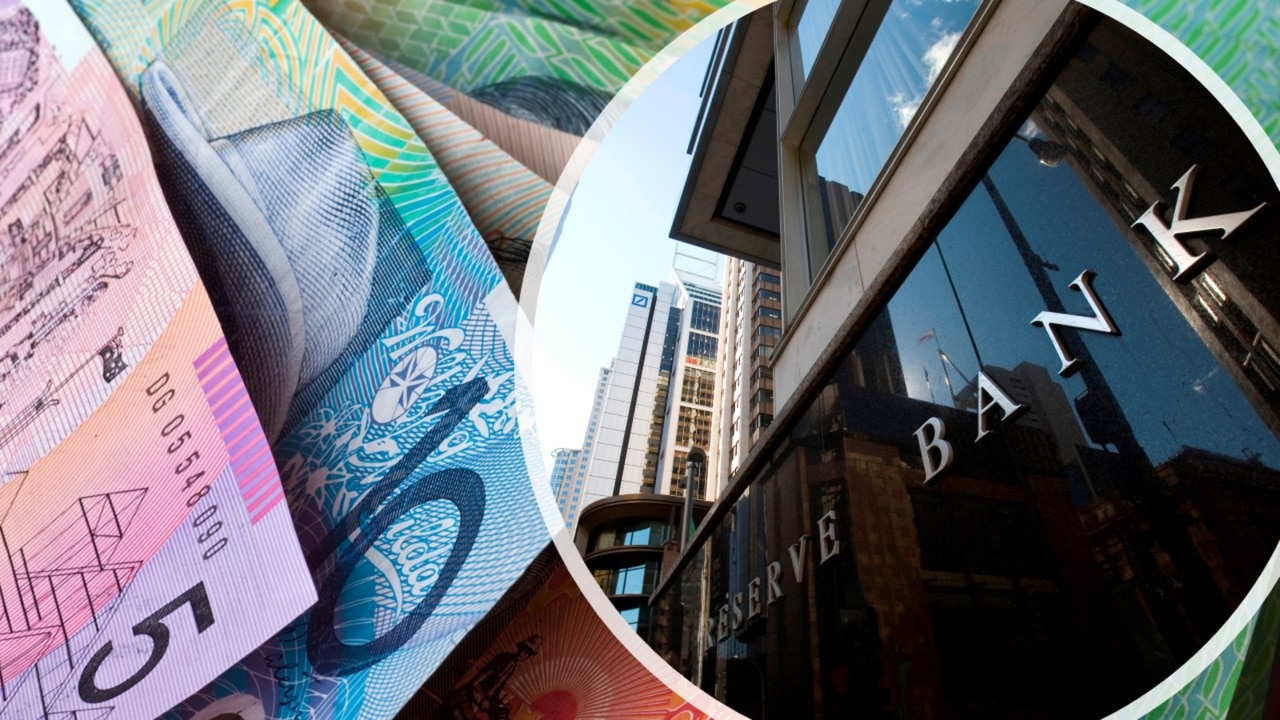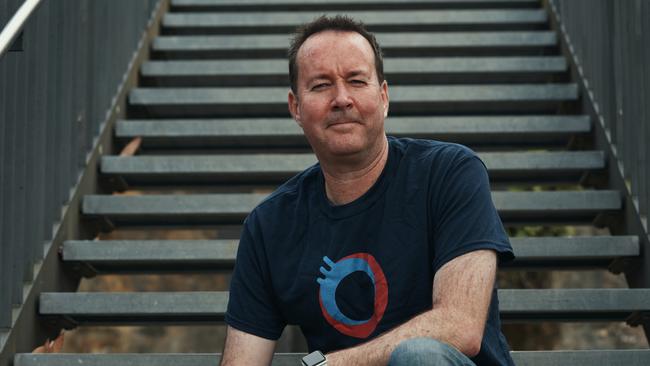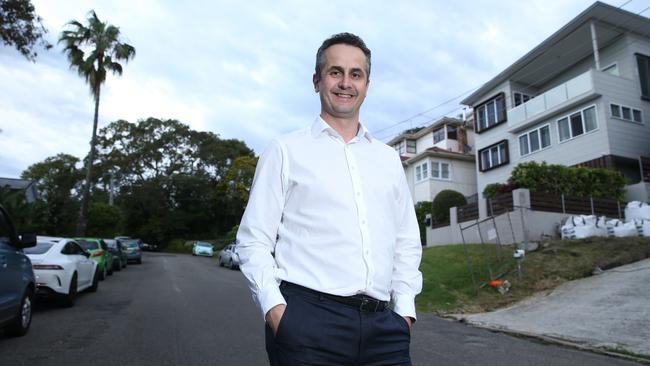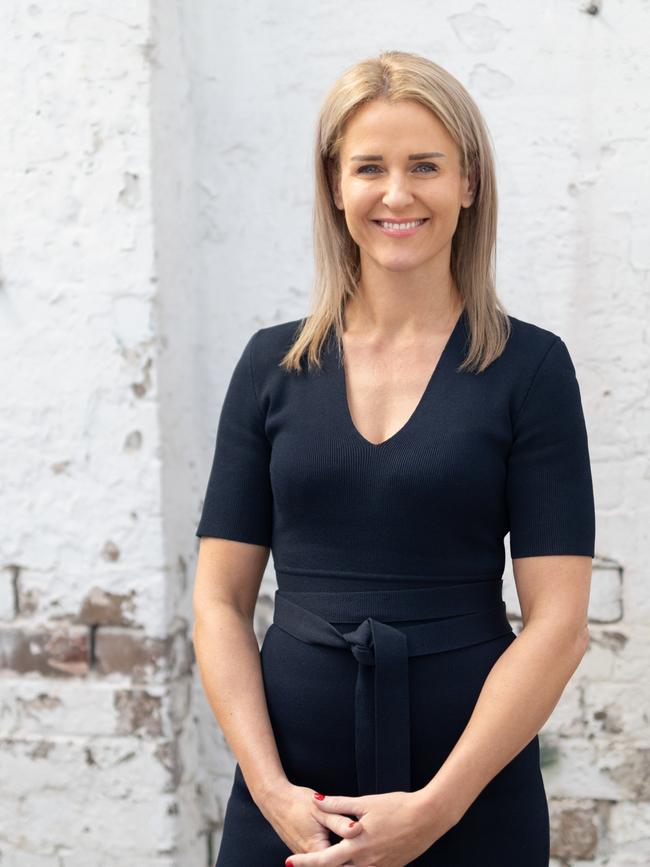Australian households under mortgage stress rises to 1.84m, Otivo report shows
New data shows more than 1.8 million Australian households are now under mortgage stress after the RBA lifted the cash rate. See the full list as experts explain what you can do next.

Property
Don't miss out on the headlines from Property. Followed categories will be added to My News.
Australian mortgage owners are feeling more pain after the Reserve Bank of Australia increased the official cash rate to 1.85 per cent.
This is the fourth consecutive month the RBA has lifted the cash rate, up from 0.1 per cent earlier this year.
New data shows 1.84 million Australian households are now feeling the pinch, up from 1.7 million last month.
Otivo surveyed 52,000 households across Australia and found owner occupier mortgage holders in Victoria, New South Wales and Queensland were the worst affected.
The online financial advice provider calculated 48 per cent of Australian owner occupier borrowers were now experiencing mortgage stress.
It found an additional 62,421 homeowners in NSW would now be under mortgage stress after the latest rate hike, taking the total to 545,117. In Vic, a further 45,972 for a total of 532,873 and in Qld there would be 15,724 more households for a total of 308,669.
In the ACT, 27,736 households are now in mortgage stress, up 832 from last month, where as in SA it is 145,158, up 2,960. An additional 764 households in Tasmania are doing it tough compared to last month, and in WA there is a total of 228,621 under mortgage stress, up 13,166 from last month.
A household is deemed under mortgage stress when more money is going out than in, according to Otivo.

Melbourne’s inner south postcode of 3146 (Glen Iris) will be hit hard with Tuesday’s rate hike, with about half the suburb’s owner occupied mortgage holders considered to be under mortgage stress.
The postcode of 3186, which includes bayside suburb of Brighton and Dendy, as well as 3145, which includes Caulfield East, Central Park, Darling and Malvern East, round out the top three worst affected areas.
Sydney’s eastern suburbs of Chifley, Eastgardens, Hillsdale and Phillip Bay are just some of the many suburbs under the postcode of 2036 which will now be affected.
The postcode 2153, which includes Bella Vista and Winston Hills, and 2077, which includes Waitara and Asquith, are also going to be some of the worst hit areas.
In Brisbane, homeowners feeling the worst mortgage stress will live in the postcode of 4069, which includes Brookfield and Chapel Hill, and 4164 (Thornlands).
The Gold Coast postcodes of 4218, which includes Broadbeach and Mermaid Beach, as well as 4221 (Elanora and Palm Beach) are also doing it tough.
Homeowners in Adelaide’s western postcodes of 5082, which includes Fitzroy and Prospect, 5045 (Glenelg) and 5022 (Grange and Henley Beach) are also experiencing mortgage stress.
Those hit the hardest in Tasmania live in the postcode of 7017, which includes Grasstree Hill and Honeywood, in the island state’s South East. And the Hobart postcodes of 7005 (Sandy Bay) and 7004 (Battery Point) will have more homes falling into mortgage stress.
In the ACT, the postcode of 2617, which includes Belconnen and Giralang, 2605 (Curtin) and 2914 (Amaroo) will also be feeling the pinch.
Some of Perth’s more affluent suburbs are set to feel the pinch. Suburbs including Applecross and Ardoss under the 6153 postcode will fall victim to mortgage stress, as will neighbouring postcode of 6152, which includes Como, Manning and Salter Point. Further south in the Mandurah postcode of 6210, which includes Madora Bay and Meadow Springs, homeowners also be doing it tough.
Meanwhile, in the Northern Territory the 9182 households in the state under mortgage stress was not expected to increase.
Otivo chief executive and founder Paul Feeney encouraged Australians to look closely at their financial situation.
“With Australians looking down the barrel of the rising cost of living and higher interest
rates, and more than 1.8 million Australians set to be suffering from Mortgage Stress off
the back of the RBA’s latest cash rate hike, now more than ever Australians need quality
and affordable financial advice to help them stay on top of their finances,” he said.

Mortgage Choice mortgage broker James Algar said a lot of people were looking to refinance their mortgage, aiming to lock in the lowest fixed interest rate possible.
He said the days of the crazy low fixed options were long gone but suggested now was a good opportunity to “reset the baseline”.
Mr Algar said compared to earlier this year, the major banks were being quite “aggressive” with wanting to keep existing customers by matching competitors or even new customer offerings, and in some cases cash backs and sweeteners to stay.
“There’s no magic people but if you don’t ask your lender for a discount they won’t give it to you,” Mr Algar said.
“Even those who aren't feeling the pinch right now – drop the interest rate but keep paying the higher amount so you build yourself up a cushion for if things get tight in the future.”
Ray White chief economist Nerida Conisbee agreed building in a buffer, whether that be by refinancing or looking at other expenses, could help down the track.
“Rates will continue to rise and mortgages will get more expensive. Now is a time for people to bunker down and prepare for tougher times,” she said.
“The issue we have is that inflation is still high and pressures on that aren’t going away anytime soon. Construction costs continue to increased, and fuel costs increasing, and pressure from rents going up will start to show later in the year.”


Canstar financial commentator Effie Zahos said more people were likely to be feeling the pressure now company the first rate increase in May.
She said on a $500,000 mortgage, people would need to find an additional $500 a month to meet their repayments.
Ms Zahos said those feeling the pinch could adjust to an interest only payment plan, which could save people about $600 a month on a $600,000 loan. Or extend the term of the loan by about five years, which would result in a drop in monthly expenses.
“But these are Band-Aid solutions. If you don’t catch up those repayments you will increase you interest rates.”
Alternatively, she suggested those with a spare room could look to rent it out until inflation and interest rates evened out.
More Coverage
Originally published as Australian households under mortgage stress rises to 1.84m, Otivo report shows




